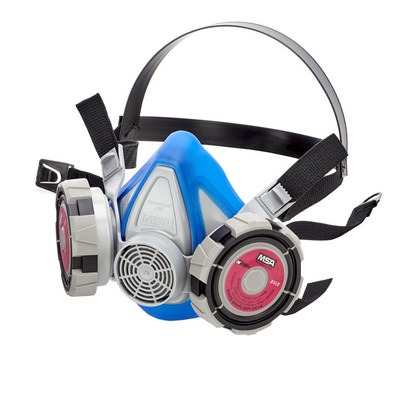
MSA Safety Inc. earned a $4 million contract from the U.S. Department of Health and Human Services (HHS) last week to produce elastomeric air-purifying respirators to be added to the Strategic National Stockpile (SNS).
The MSA’s Advantage 290 Air-Purifying Respirator (APR) consists of a silicone rubber facepiece to cover wearers’ noses and mouths, complemented by twin filters to provide respiratory protection. Reusable once disinfected, the respirators will be domestically produced in MSA’s manufacturing facility in Jacksonville, North Carolina.
The award followed investments from MSA itself over the past year and a half meant to expand that facility’s manufacturing capacity and update its equipment.
“We have learned much over the past year-and-a-half, and near the top of that list is the criticality of providing our healthcare workers with a reliable and adequate supply of PPE when a pandemic strikes,” Nish Vartanian, MSA Safety president, chairman and CEO, said. “Throughout our 107 years of business, MSA’s mission of protecting people’s health and safety has never changed. The work we’re doing to support U.S. healthcare workers aligns perfectly with that mission. We’re grateful for the opportunity to serve as a partner in nationwide efforts to help protect healthcare workers throughout the country.”
What sets the Advantage 290 Respirator apart from most respirators is that it filtered both inhaled and exhaled air through its respirator filter media, removing any need for a traditional exhalation valve. This provides greater protection against COVID-19 spread, for example, in the event a healthcare provider is infected.
“Deploying a respiratory protection program that incorporates elastomeric respirators provides a number of benefits, including cost-efficiency, reduced space requirements for PPE warehousing, and environmental sustainability,” Greg Martin, MSA Vice President of Product Strategy and Development, said.
Martin added that these new respirators could be utilized in conjunction with disposable respirators to reduce the risk of supply chain interruptions overall. As part of the SNS, they will be used by states, tribal nations, territories, and large metropolitan areas in public health emergencies.




